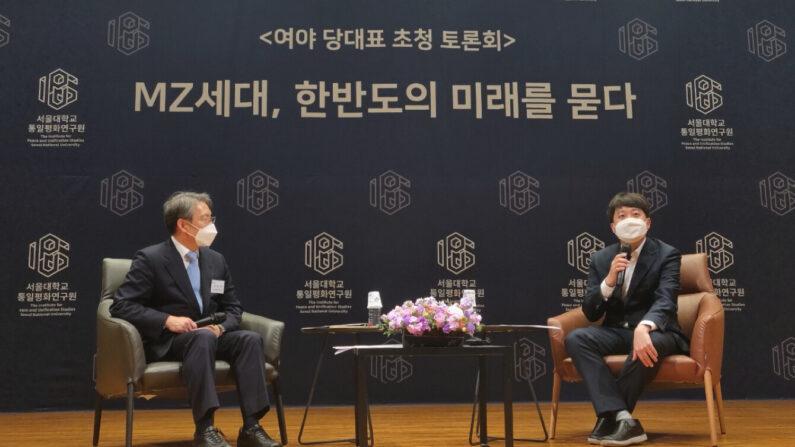Lee Jun-seok, leader of the People Power Party, the largest opposition party in South Korea, said recently that unreasonable demands made by the Chinese Communist Party (CCP) on Terminal High Altitude Area Defense (THAAD) and other issues cannot be accepted. He also stressed that democratic values should take precedence over economic values in international relations.
South Korea’s presidential election in March is just over three months away. In a lecture titled “Generation MZ, Asking for the Future of the Korean Peninsula” held at Seoul National University on Friday, Lee said that Yoon Seok-youl, the People Power Party candidate, insisted that South Korea should say what it wants to say against the CCP. Regarding North Korea, the Party insists on the principle of mutualism—that Seoul will only respond if North Korea makes changes.





